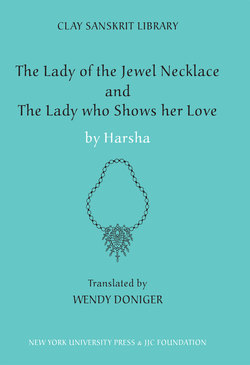Читать книгу The Lady of the Jewel Necklace & The Lady who Shows her Love - Harsha - Страница 19
На сайте Литреса книга снята с продажи.
Оглавлениеthe map of India. A king in Kanauj who gets, first, nearby Avanti (from Vasava·datta) and then Simhala (from Ratnavali) doesn’t need a magic prediction to tell him what he will have: these two dowries are the whole world, the whole of India. (Consider, too, the political alliances formed by Harsha’s parents and siblings.) A marriage alliance with the ruler of Sri Lanka (Simhala) might not matter so much for, say, the king of Madras/Chennai, but for a north Indian king, Simhala is the end of the world.
Udayana’s conquest of another woman (Sagarika or Aranyika) is actually the conquest of another country, though he doesn’t know it at the time; he wants everything, of course, and he gets it. The jester, as usual saying more than he knows, explicitly compares an erotic conquest with a political one, when he says that the news of a forthcoming rendezvous with Ratnavali will give the king even more pleasure than “his acquisition of the kingdom of Kaushambi gave.” Appeasement is the key to both sex and politics; the same word is used for talking around an offended woman and conciliating a nervous potential enemy. The extreme instance of this comes in Act Four of ‘The Lady who Shows her Love,’ when the king is trying to find a way to get his girlfriend out of the prison that his wife has put her in, and the jester suggests that he simply attack the harem with his elephants and horses and footsoldiers. The king scorns this plan, preferring to do something that will appease the queen rather than, perhaps, kill her, but the jester is simply urging the king to use all the means at his disposal; all’s fair in love and total war. At the start of Act Three of ‘The Lady of the Jewel Necklace,’ Kanchana·mala remarks of the jester, with ________
